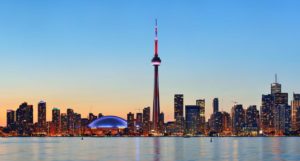Immigration update for the AMER and APAC regions
Americas
Canada: Canadian interests – International Mobility Program
IRCC (Immigration, Refugees and Citizenship Canada), has now updated its guidance on considerations an officer is to have when considering a work permit under this “LMIA” (Labour Market Impact Assessment) exemption.
LMIA exemptions include, among others, Intra-Company Transfers, Professionals under various free trade agreements, and the Francophone Mobility Program. Also ‘Significant Benefit’, or referred as C10 (its exemption code). This program lets local employers hire temporary workers without a LMIA if broader economic, cultural or other competitive advantages for Canada will occur or there are otherwise reciprocal benefits between the two countries (Canada and the sending one).
This summary was prepared using information obtained from the Government of Canada.
Disclaimer: The above information is provided for general information purposes only and should not be construed as legal advice. If you have any further inquiries regarding the applicability of this information, please contact Roberta Carnaccini, Global Operations Director, Immigration.
Asia-Pacific
Brunei Darussalam: Extension of temporary travel restrictions
Temporary suspension on cross-border activities including:
- Entry of foreign nationals via land and seaports, including transits through Brunei Darussalam, unless government approved.
- Couriers registered in Brunei Darussalam, collecting and delivering private goods at border checkpoints.
- Entry and exit-country travels of commuters via land and seaports for the purpose of work.
Temporary suspension on travelling to and from India, Nepal, Sri Lanka, Pakistan and Bangladesh:
- Entry and exit travels of all foreign nationals departing from or through any airport in the above countries, except of those diplomatic passport holders and members of the armed forces working in Brunei Darussalam are:
- Allowed to enter the country, in accordance with the Ministry of Health’s Standard Operating Procedures (SOPs).
- Allowed to exit the country, including foreign nationals who hold an employment or dependent’s pass which has been revoked/cancelled or the holders of the “Special Authorization Work Pass” or “Professional Visit Visa” who worked temporarily in Brunei Darussalam and will be returning to their respective countries permanently.
- Transits through Brunei Darussalam for all foreign nationals departing from above countries.
- Entry of foreign nationals who have been granted pre-approvals to enter Brunei Darussalam from the countries named above via pre-authorized flights, which have therefore been suspended.
These measures are effective until July 15, 2021.
This summary was prepared using information obtained from the Prime Minister’s Office (in Malay).
Hong Kong: Entry restrictions
From July 01, 2021, travelers including Hong Kong residents who have been in Group A1, countries with extremely high-risk (Brazil, India, Indonesia, Nepal, Pakistan, the Philippines, South Africa and the U.K.) within the last 21 days before entry must comply with the following:
- Present negative results of a nucleic acid COVID-19 test conducted within 72 hours prior to departure.
- 21-day quarantine in a designated quarantine hotel (a room reservation at a designated quarantine hotel in Hong Kong SAR may be required upon boarding and upon entry).
- Undergo four tests during quarantine, self-monitor in the seven days following quarantine and a COVID-19 test on day 26 of arrival at Hong Kong at any Community Testing Centre (CTC).
The government of Hong Kong bans all flights from the U.K.
This summary was prepared using information obtained from the Government of Hong Kong and Hong Kong Free Press.
Indonesia: Coronavirus restrictions
Entry ban for foreign nationals with travel history to India within 14 days before entering Indonesia until further notice, except for foreign nationals who hold a valid visa or stay permit including:
- Official Visa, Diplomatic Visa, Visitor Visa, Limited Stay Visa, Official Stay Permit, Diplomatic Stay Permit, Limited Stay Permit or Permanent Stay Permit.
- Asia-Pacific Economic Cooperation (APEC) Business Travel Card holders and Traditional Border Crossing pass/card holders are also allowed to enter Indonesia.
Individuals traveling domestically are obligated to comply with the health protocols set out in each area of origin or destination. Long-distance travelers to and from Java and Bali using all modes of transportation (land, air, and sea) must provide:
- The first vaccination card
- A certificate of negative RT-PCR or Rapid Antigen (depending on the mode of transportation)
- Implementing the 5M health protocol, namely: wearing a mask, washing hands, social distancing, staying away from crowds, and limiting mobilization and interaction.
Foreign nationals who are already in Indonesia and need to travel, both domestically and internationally, are required to be vaccinated through a program or mutual cooperation scheme in accordance with the laws and regulations that will be announced.
All foreign nationals entering the territory of the Republic of Indonesia are required to show a Covid-19 vaccination certificate or vaccination card (in physical form or digital form) as proof of completing vaccination in full dose.
No requirement to show proof of vaccination for foreign nationals who are holders of diplomatic and service visas and are part of a foreign official/state visit on ministerial level and higher rank and foreign nationals entering Indonesia under the Travel Corridor Arrangement scheme, by upholding principles of reciprocity and implementing strict health protocols.
This summary was prepared using information obtained from the Ministry of Foreign Affairs (in Indonesian).
Singapore: New/existing Long Term Pass holders
From July 1, 2021, companies may only submit entry approval requests between three to 30 days from the employee and related dependents planned arrival date. Prior to July 1, 2021, companies can submit entry approval requests up to 60 days in advance. The latest change is aligned with the government efforts to manage the inflow of inbound travelers and mitigate the risk and incidences of imported cases.
Authorities are yet to officially confirm that entry approvals for travelers from higher risk countries will be processed over the coming weeks.
Higher risk countries refer to all countries/regions except Australia, Brunei Darussalam, Mainland China, New Zealand, Hong Kong and Macao. No changes in travel requirements for travelers from lower risk countries.
This summary was prepared using information obtained from the Ministry of ManPower.
Thailand: Phuket Sandbox scheme
The Phuket Sandbox Scheme allows Thailand citizens and foreign nationals who have resided in designated countries for at least 21 days to travel and stay in Phuket for at least 14 nights. All travelers must comply with all the conditions under this scheme.
Under the scheme, travelers are subject to Covid-19 screening including a RT-PCR test upon arrival, and once they test negative, the traveler can go anywhere within Phuket Island but will still be required to return to the Thailand Safety and Health Administration (SHA) Plus certified accommodation in Phuket every night.
All travelers must stay on Phuket Island for 14 days before they can travel to other parts of Thailand. Travelers staying less than 14 days must depart Thailand by direct international flight to other countries. For travelers from Phuket to other destinations in Thailand, vaccinated international travelers must show a vaccine certificate, a medical certificate stating that they have tested negative for Covid-19 during their stay in Phuket, and a valid visa at the Phuket Airport.
The scheme is subject to a reduction in the number of travelers to the city or could be revoked at any time if the number of cases in Phuket reaches more than 90 within a week or there are more than three clusters.
This summary was prepared using information obtained from the Tat News.
Disclaimer: The above information is provided for general information purposes only and should not be construed as legal advice. If you have any further inquiries regarding the applicability of this information, please contact Debra Jane Beynon, Regional Immigration Manager (APAC).
We track policy changes in over 120 countries. Find out how we can help you in this short video.




